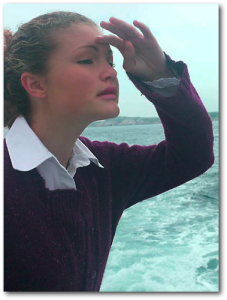 Last week, I expressed my gratitude for folks from this past year. That’s looking back, so it’s time to gaze a touch ahead. With some thoughts on the whole idea! So here’s looking forward to 2025. (Really? 25 years into this new century? Wow!)
Last week, I expressed my gratitude for folks from this past year. That’s looking back, so it’s time to gaze a touch ahead. With some thoughts on the whole idea! So here’s looking forward to 2025. (Really? 25 years into this new century? Wow!)
First, I’m reminded of the talk I heard once. The speaker, who’d if memory serves had written a book about predicting the future, explained why it was so hard. His point was that, yes, there are trends and trajectories, but he found that there was always that unexpected twist. So you could expect X, but with some unexpected twist. For instance, I don’t think anyone a year ago really expected Generative AI to become such a ‘thing’.
There was also the time that someone went back and looked at some predictions of the coming year, and evaluated them. That didn’t turn out so well, including for me! While I have opinions, they’re just that. They may be grounded in theory and 4+ decades of experience, but they’re still pretty much guesswork, for the reason above.
What I have done, instead, for a number of years now is try to do something different. That is, talk about what I think we should see. (Or to put it another way, what I’d like to see. ;). Which hasn’t changed much, somewhat sadly. I do think we’ve seen a continuing rise of interest in learning science, but it’s been mitigated by the emergence of ways to do cheaper and faster. (A topic I riffed on for the LDA Blog.) When there’s pressure to do work faster, it’s hard to fight for good.
So, doing good design is a continued passion for me. However, in the conversations around the Learning Science conference we ran late this year, something else emerged that I think is worthy of attention. Many folks were looking for ways to do learning science. That is, resolving the practical challenges in implementing the principles. That, I think, is an interesting topic. Moreover, it’s an important one.
I have to be cautious. When I taught interface design, I deliberately pushed for more cognition than programming. My audience was software engineers, so I erred on getting them thinking about thinking. Which, I think, is right. I gave practical assignments and feedback. (I’d do better now.) I think you have to push further, because folks will backslide and you want them as far as you can get them.
On the other hand, you can’t push folks beyond what they can do. You need to have practical answers to the challenges they’ll face in making the change. In the case of user experience, their pushback was internal. Here, I think it’s more external. Designers want to do good design, generally. It’s the situation pragmatics that are the barrier here.
If I want people to pay more attention to learning science, I have to find a way to make it doable in the real world. While I’m finding more nuances, which interests me, I have to think of others. Someone railed that there are too many industry pundits who complain about the bad practices (mea culpa). That is, instead of cheering on folks that they can do better. And I think we need both, but I think it’s also incumbent to talk about what to do, practically.
Fortunately, I have not only principle but experience doing this in the real world. Also, we’ve talked to some folks along the way. And we’ll do more. We need to find that sweet spot (including ‘forgiveness is easier than permission’!) where folks can be doing good while doing well. So that’s my intention for the year. With, of course, the caveat above! That’s what I’m looking forward to. You?